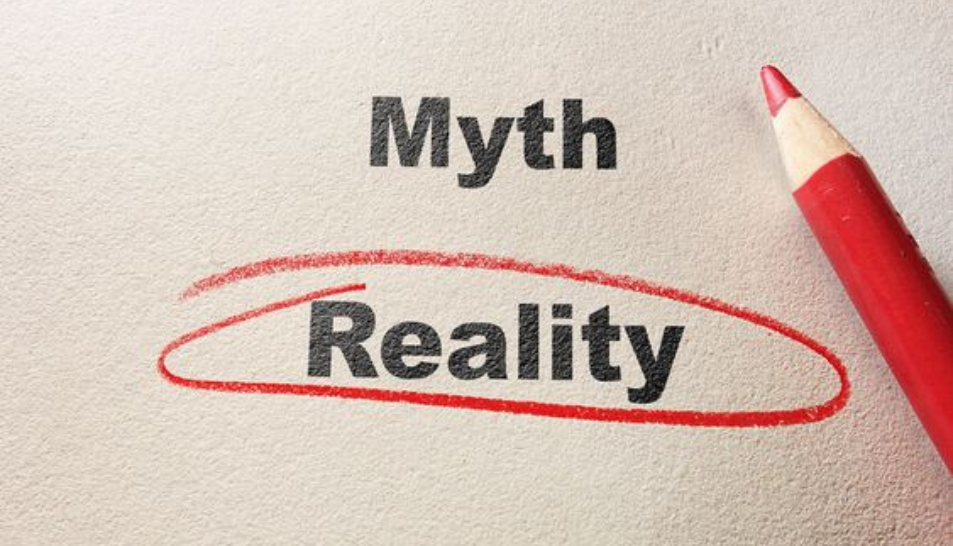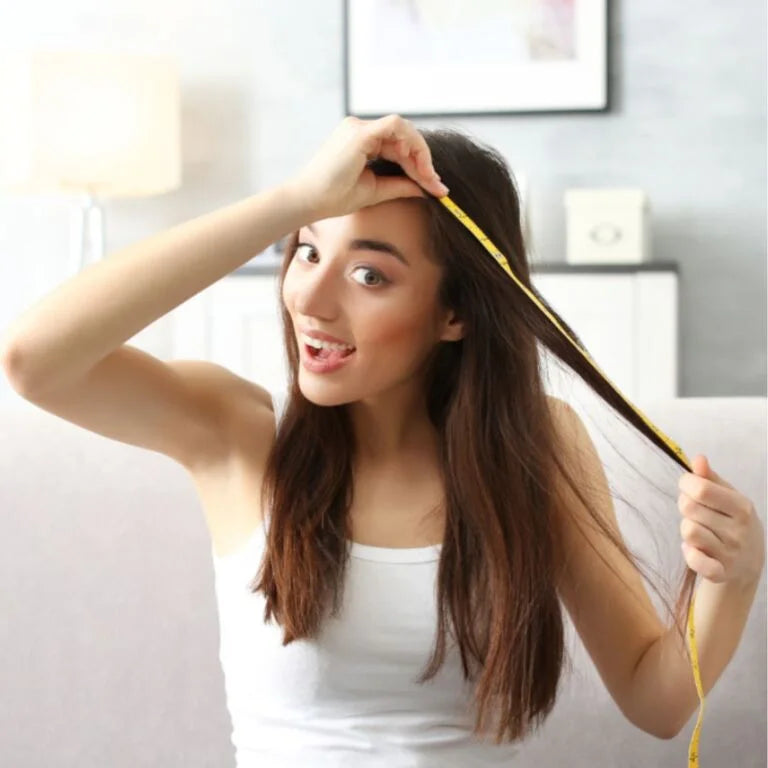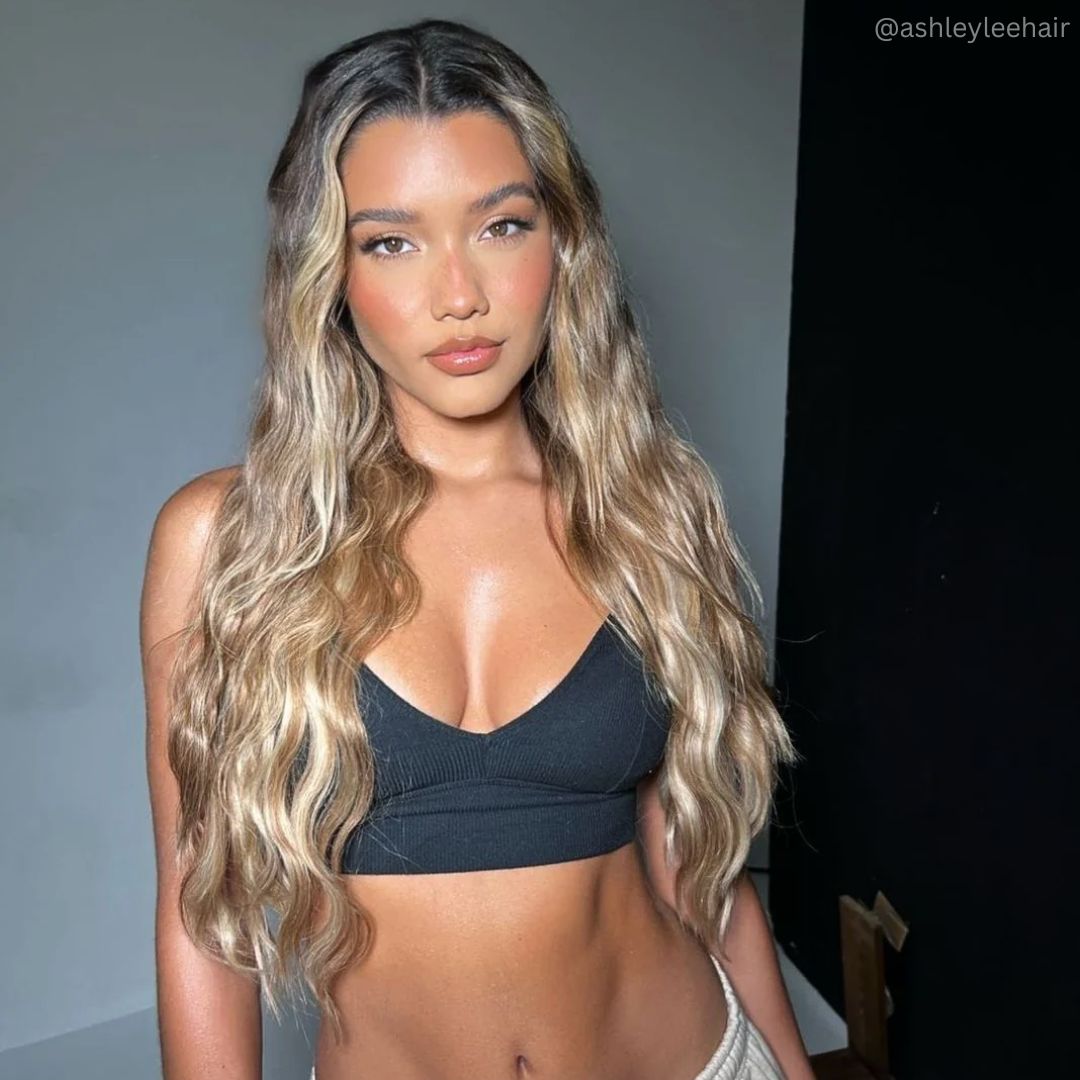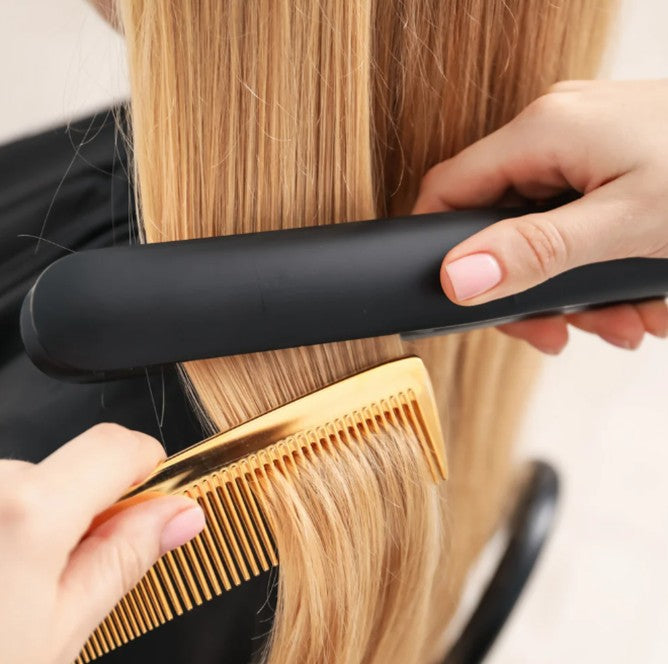Let's Debunk The Hair Myths You May Have Heard
by BRENDA L. / APR 14, 2023

Reading Time: 6 Minutes
Index
From miraculous products that will make your hair grow overnight to plucking white hairs that will make them grow in doubles: let’s be honest, some hair myths are closer to science fiction rather than the truth – and yet, so many people fall for these old wives’ tales. Sometimes indulging in hearsay doesn’t do any damage, but sometimes it can become a serious obstacle or even cause serious harm to your scalp and tresses, not to mention your confidence. In my life I have experimented with hair techniques, dyeing methods and DIY so much – and with that experience and research in science-backed facts, I have decided to share with you what I’ve learned and debunk some of the most common hair myths you may have heard.
You’ll Get More Greys If You Pluck Them Out
This myth says that if you pluck out a silver hair, it will come back with an ally – yes, another silver hair. This is not true – plucking a white hair out won’t double up your number of melanin-impoverished follicles, however plucking your hair out can cause scarring on your scalp, or permanently damage a follicle and lead to patch baldness. So, long story short: don’t pluck your hair out! If you’re struggling with white hair and would like to keep your mane of one uniform colour, you can always resort to hair dye.
Brushing Your Hair 100 Times A Day Will Keep Them In Place
Whilst brushing and detangling your hair is part of a healthy hair care routine, overdoing this can inflict more damage than do good to your tresses and scalp. First things first, know the tools you’re using: a paddle brush, a round brush, a detangling brush, large-toothed comb, pin-tail comb, boar bristle brush… All of these tools serve different purposes and allow you to achieve different types of blowouts, get rid of knots, and help your hair live its best life at its natural state. Brushing your hair in the morning, detangling after a shower and perhaps giving it a second go before going to bed is perfectly enough. If you’re worried about knotting and matting whilst you’re resting (especially if you’re wearing hair extensions) try adopting a protective hairstyle to prevent your tresses from tangling. If you’d like to know more, read everything about it in our dedicated post: 10 Protective Hairstyles For Sleeping (Straight To Loose Curls Edition).
Washing Your Hair Every Day Is Bad For You
No, it’s not. But it all depends on the type of products that you’re using! If you wear Remy hair extensions, washing your tresses with sulfate-free and alcohol-free shampoo and conditioner is the best option, as they won’t try out your hair and extensions whilst delicately cleansing your scalp. Every hair type is different and some people might find that their hair feels better on day two after washing, whilst other individuals feel like their tresses feel heavy and dull right on the day after washing it. There isn’t a one-size-fits-all perfect hair care routine, and if your hair feels lightweight, clean and soft only when you wash it, then shampooing it every day isn’t a bad idea.
You Can Train Your Scalp In Producing Less Oil
With the rise in popularity of the “no-poo” system – a hair care routine that involves less washing that allegedly helps your hair regulate a balanced production of sebum, the misconception that you can simply “teach your hair” to become less oily by reducing your shampoo usage isn’t exactly true. Some experts are a fan of this method, some others are not fully convinced. The truth is, trying the no-poo system or scalp training can be beneficial to some people whilst it can only lead to oily, suffocating scalps and lifeless tresses for some others. It isn’t right to promote this method as a universal solution for oily scalps in general, although some people may find it beneficial. If you wear tape in hair extensions, for example, not washing your hair and letting the sebum in excess build-up on your scalp can make your head itchy, cause dandruff, and ultimately make your extensions slip off.
Coconut Oil Will Make Your Hair Grow Faster
Whilst nourishing products, moisture-retaining oils, and massaging your scalp all have beneficial effects on your hair’s health and growth, the oil itself (whether it’s coconut, castor, rosemary or whatever) won’t make your hair grow overnight. Hair growth is part of a process that includes different phases, so don’t be fooled by those videos that promise hair growth of an inch per week – that isn’t a realistic standard. However, it’s true that some essential oils can help you solve hair and scalp health issues and help you tresses retain moisture and elasticity, therefore combating split ends, brittleness, breakage, and dryness – all factors that actively contribute to the growth of a healthy mane. If you’d like to add instant length and volume to your tresses, you can easily do this with clip in hair extensions for a quick change of look. Wearing hair extensions to achieve new hairstyles will let you experiment with your image whilst your natural hair grows to your desired length!
Cutting Your Hair More Often Will Make It Grow Faster
This isn’t true in the sense that cutting your hair per se won’t stimulate hair growth from the follicle, however, it’s important to note that regular trims will keep your hair looking healthy and prevent split ends, brittleness and breakage. So, technically, this will contribute to your long hair staying long and healthy, which is a pro.
Not Using Conditioner Will Make Greasy Hair Better
Nope, nein, no. Conditioner and leave-in conditioner are great products with softening, nourishing characteristics that will help your hair retain moisture, stay soft for longer, and be more manageable in general. Now, if you have greasy hair, cutting on your conditioner usage won’t be enough to help your hair stay clean and lightweight for longer; actually, all you may be doing is just depriving your tresses of their own spa moment under the shower. The key to success when using conditioner is to know which product works best for your hair type, and how to use it. You can do this by knowing the recipe of your conditioner of choice first of all; you can do this by learning how to read labels properly. Find out more in our dedicated blog: How To Read Hair Labels Like A True Pro. Always make sure your conditioner goes on mid lengths and ends and not on your scalp in order to avoid the oily, heavy sensation on your tresses.
Using A Repairing Shampoo Will Fix Split Ends
Unfortunately, the only remedy to fix split ends (and in some cases, even deeply fried ones) is getting a good trim. Whilst this might not make everyone happy, chopping off damaged ends will help your hair stay healthy, full-looking and grow without breaking off as much. If you need to get rid of a good portion of your hair because of serious damage, you can always look into permanent hair extensions to keep the length and volume looking natural whilst waiting for optimal regrowth.
Conclusion:
There are many hair myths out there; some of them may originate from ancient knowledge that was clarified by science later on, whilst some others are the result of ruthless marketing propaganda. Either way, it is essential to distinguish fact from fiction to learn how your hair behaves, responds to treatments and ultimately flourishes at its natural state!
Looking for flawless, salon-worthy hair without breaking the bank? At Cliphair, we’ve got you covered with luxurious clip in hair extensions for quick transformations and permanent hair extensions for long-lasting glam. Extensions require special care and maintenance to preserve their quality, which is why we have all the top-notch hydrating haircare products needed to keep your style on point.
Need the perfect shade? Browse our full range of human hair extensions in over 70 rich, silky shades or check out our FREE Express Color Match Service to ensure a seamless blend every time.






